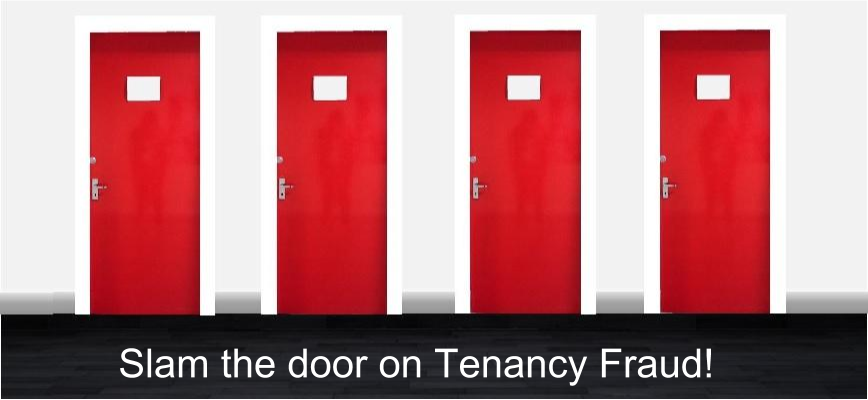Having been fortunate in my adult life not to have needed the help of social housing this is a subject that has gone completely over my head. I was recently astounded at the blatant audacity of some people regarding tenancy fraud and unlawful subletting.
My eyes were opened by the BBC TV Programme Council House Crackdown, a series that follows tenancy fraud investigation officers tracking down social housing cheats with a view to reclaiming homes and giving them to genuine people in need of them. It certainly answered the question “what is housing tenancy fraud?” for me.
After my initial shock at the magnitude of this problem the next thing that sprung to mind, which I have written about on numerous occasions, is to always make sure you use a reputable letting agent when renting a property to protect both yourself and your deposit.
Tenancy Fraud Definition
There are different areas that come under the definition of tenancy fraud, here are the four most common:
Unlawful Subletting
This is when the tenant of a council or social housing property let out their property to a third party without the knowledge of the landlord, usually charging the new tenants a much high rate. The original tenant usually continues to pay the rent to the landlord so that they are unaware of the situation. Unlawful subletting is a criminal offence and includes the tenant moving out and leaving relatives in the property too. Tackling unlawful subletting and occupancy is key to giving social housing to those who are in greater need.
Obtaining Housing by Deception
This is when a person applying for council or social housing gives false information in their housing application. For example:
- Claiming that they have more people living with them than they actually do.
- Omitting to disclose that they are renting out a property that they own.
- Not offering the information that they are already renting another council property.
Unlawful Succession
Wrongly claimed succession is when someone who is not entitled to the property takes over the tenancy. For example, if someone dies and leaves behind a council property they might say that they lived at the property when in fact they lived elsewhere. There are rules to be followed that outline what has to be done with a property when a tenant dies.
Key Selling
This is when a tenant hands over the keys to a new tenant for a one-off payment. The tenant in this scenario should hand the keys back to the landlord.
Abandonment
When a tenant does not use the property they have been given as their principal home it is known as abandonment and will result in paying the tenancy fraud consequences.
What is being done about tenancy fraud?
It is hard to believe that across the UK an estimated 50,000 social housing properties are occupied by someone that is not entitled to live there. That equates to almost 100,000 people in the UK committing tenancy fraud, costing local governments in the region of £845m per year.
The Tenancy Fraud Act 2013 has made tenancy fraud a criminal office. People found guilty of committing housing fraud are likely to lose their tenancy and are at risk of losing their right to Council or social housing in the future. Depending on the seriousness of the tenancy fraud, there is also the possibility of a prison sentence.
The law along with a national campaign to crack down on social housing fraud, a part of which is encouraging the general public to report suspected fraud, will hopefully have the desired outcome of getting these properties to those that are genuinely needy.
How could anyone even think that fraudulently retaining a property for their own personal gain is acceptable when there are people in serious need, crying out for somewhere to live. What are your thoughts? Let me know in the comments.

Be the first to comment on "What is Housing Tenancy Fraud?"